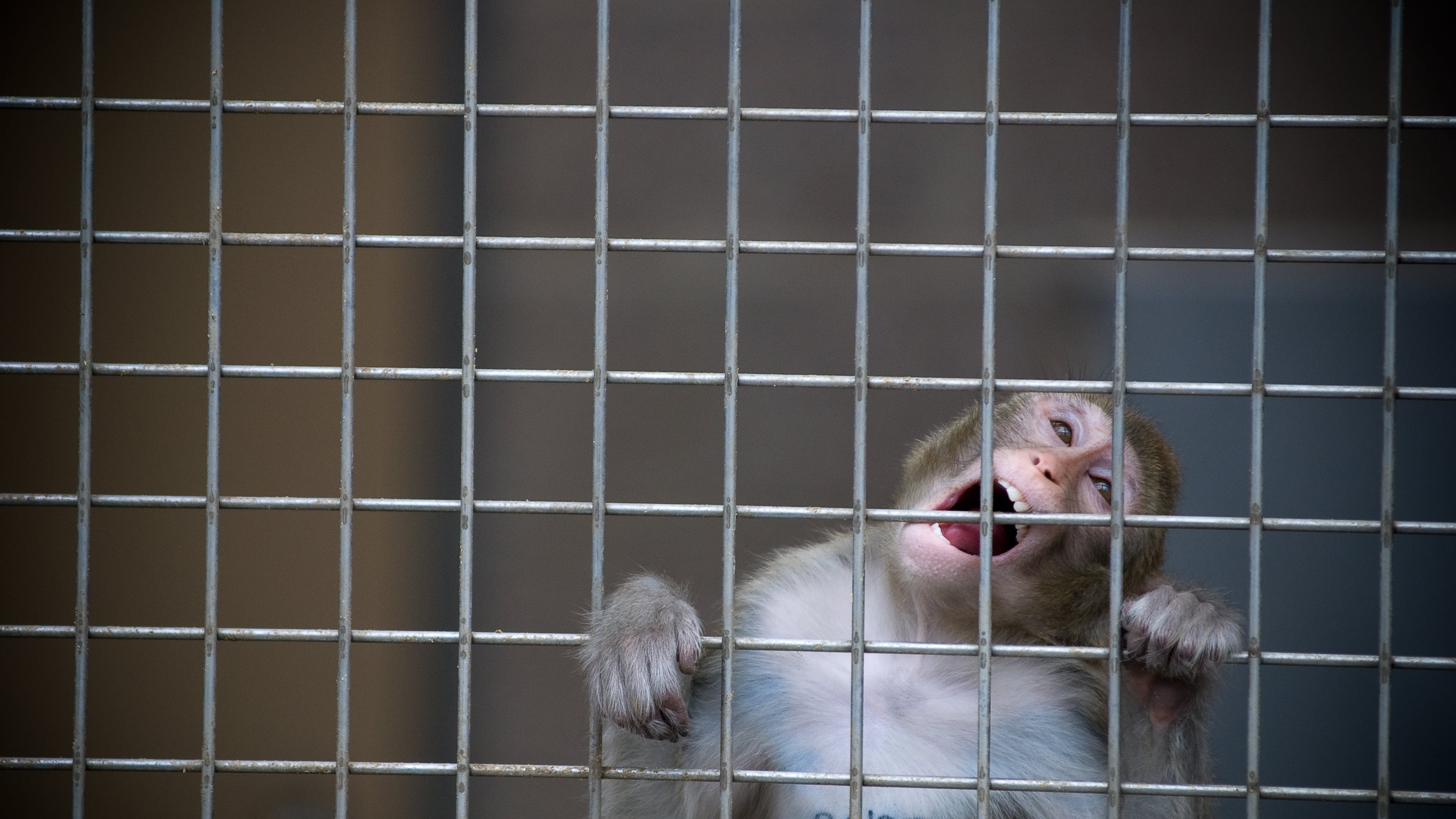People for the Ethical Treatment of Animals wrote to the National Institutes of Health on Thursday, urging them to investigate violations of rules that govern the welfare of laboratory animals at the Oregon National Primate Research Center.
The letter follows a March inspection by the U.S. Department of Agriculture, one of the agencies regulating the center, that found workers didn’t attend to a 4-year-old Japanese macaque that appeared sick in October and died of sepsis a day later.
Inspectors also found that 38 other Japanese macaques were kept for four days in cages that didn’t have the minimum amount of space required by law.
The primate center, run by Oregon Health & Science University, has been under intense pressure this year as animal rights groups bet that regulators could lean on OHSU to stop primate testing as it seeks approval to purchase rival Legacy Health.
The deal must be approved by a unit of the Oregon Health Authority, whose director reports to Gov. Tina Kotek. In a statement to WW last month, Kotek called for researchers to “complete their current research obligations and move towards shutting the center down in a humane and responsible manner.”
Amy Meyer, associate director of primate experimentation campaigns at PETA, addressed her letter to Brent Morse in the NIH’s Office of Laboratory Animal Welfare.
“We urge your office to thoroughly investigate the failures detailed in the USDA inspection report and assess whether OHSU has complied with its obligation to self-report problems in its laboratories,” Meyer wrote.
“Anytime we see violations that are reported to USDA that may not be reported to NIH, we let them know,” Meyer said in an interview. “If it is lab that is getting taxpayer money, we want them to know about it.”
Almost all of the primate center’s $63 million budget comes from NIH grants.
An OHSU spokeswoman said in an email that the primate center reported the violations to the NIH on Nov. 21, as required.
More broadly, she said, PETA’s claim that OHSU violated animal welfare laws are false. The NIH’s Office of Laboratory Animal Welfare approved corrective actions on Nov. 22, the spokeswoman wrote. The USDA revisited the primate center in March and determined that violations were corrected.
“Dozens of highly trained veterinary professionals engage with these animals daily to ensure their ongoing safety, enrichment, health and well-being,” the OHSU spokeswoman wrote. “These dedicated individuals develop strong bonds with the animals entrusted to their care--often for many years, and, in some cases, decades. The unexpected death of any animal is distressing, and their passing is grieved.”
Animal rights advocates say research on primates is outdated and unnecessary. Last week, the U.S. Food and Drug Administration, now run by Johns Hopkins University surgical oncologist Martin Makary, said it was replacing animal testing in the development of monoclonal antibody therapies and other drugs with other methods.
“For too long, drug manufacturers have performed additional animal testing of drugs that have data in broad human use internationally,” Makary said in a statement. “This initiative marks a paradigm shift in drug evaluation and holds promise to accelerate cures and meaningful treatments for Americans while reducing animal use.”
Makary, who reports to Health and Human Services Secretary Robert F. Kennedy, has been a vocal critic of the medical establishment, according to the Associated Press. He had called U.S. food “poison” and has claimed that the federal government is the “greatest perpetrator of misinformation” about COVID-19, the AP reported.
